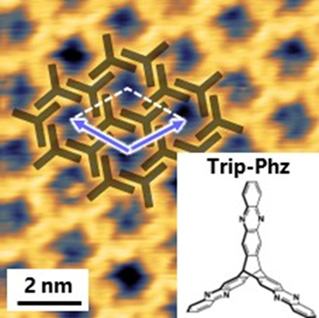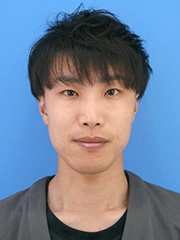Joint Workshop LANL/NIMS Quantum and Functional Materials and MANA International Symposium 2024
Quantum Materials - 09
Abstract
In recent years, molecular two-dimensional structures (2D) on metal surfaces have been actively investigated in the field of organic molecular electronics and spintronics. Organic molecules on metal surfaces form 2D network that differ from the bulk structure, and any lattice can be constructed by adjusting the molecular structure. In particular, the honeycomb lattice is 2D structure with strongly isotropic lattices proposed by graph theory, and gives rise to surprisingly rich electronic properties. However, the realization of the electronic properties about purely 2D network is not straightforward because of the strong influence of a supporting substrate as well as the existence weak intermolecular interactions. This time, we propose a triptycene derivative with phenazine moieties, Trip-Phz (Fig.1 inset)
In this study, we discuss about the structural and electronic properties of self-assembled Trip-Phz molecular monolayers on Ag(111) surfaces by means of scanning tunneling microscopy measurements, tight binding calculations and density functional theory calculations.
We will report the detail about the band structure of this system in this presentation. And we discuss about the possibility of realizing an artificial Dirac band by molecular network. This work was already published in ACS nano

Reference
- R. Ushiroguchi, Y. Shuku, R. Suizu, and K. Awaga, Cryst. Growth Des. 20(12), 7593-7597 (2020) DOI 10.1021/acs.cgd.0c01176
- R. Nemoto, R. Arafune, S. Nakano, M. Tsuchiizu, N. Takagi , R. Suizu, T. Uchihashi, and K. Awaga, ACS Nano 18(30), 19663–19671, (2024). DOI 10.1021/acsnano.4c04496

